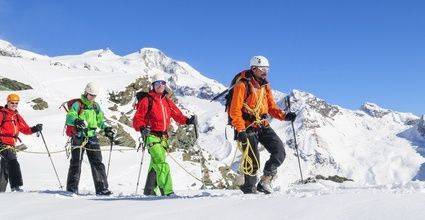It’s not unusual to try to cut down on sleep to be able to do everything we have on our busy schedules. However, this practice is simply not healthy for us and it will catch up with us sooner or later. Why is sleep so important and how can we ensure we get enough of it? Keep on reading for some useful tips.
The Stages Of Sleep And Their Importance

For starters, you should be aware of the four stages our bodies go through when we sleep.
When we first fall asleep, we go through the first stage which is non-REM (Rapid Eye Movement) sleep. It typically lasts seven minutes and during it, our eye movements, brain waves, and heart rate all slow down.
The second stage is actually the one we spend the most time in. Also, non-REM is the light sleep that occurs before deep sleep. Here, our eye movements stop, body temperature decreases, and muscles and heart rate further relax. There is also a brief spike in brain waves but they slow down again afterward.
Deep sleep begins in phase three even though it is still non-REM sleep. Our brain waves become even slower and we stop moving our eyes and muscles. The importance of deep sleep cannot be disregarded as it has a restorative function, helping our bodies repair cells, tissues, and muscles and replenish energy.
During the last stage, we experience REM sleep. Our eyes move rapidly and our breathing, heart rate, and brain waves speed up too. The fourth stage typically occurs some 90 minutes after we fall asleep and this is the stage when dreaming happens. Additionally, during this stage, the brain processes information, which is why sleep aids with memory and learning.
Something else you should keep in mind is the fact that we go through these four phases several times during the night. We typically experience the whole cycle four or five times and each of them can last from 70 to 120 minutes.
The Necessary Amount Of Sleep
When it comes to how much sleep we need, it actually varies from person to person. Plus, age also plays a big role in the necessary amount of sleep an individual might need.
There are some guidelines, however, that can help us determine how much sleep we should get. For example, babies younger than a year should sleep for somewhere between 12 and 17 hours a day. From 10 to 14 hours should be enough for toddlers of up to five years, while kids from six to twelve years old need 9 to 12 hours of sleep. For teenagers, 8 to 10 hours is recommended while adults to 60 should make sure they get at least seven hours of sleep. Those older than 61 usually need between seven and nine hours.
The Benefits Of Enough Sleep
Sleep is a basic human need, just like food and water. While everyone needs sleep, research suggests that individuals with high levels of physical and intellectual activity require more sleep to be able to fully recuperate. With that in mind, if you’re regularly going on hikes, sleep is vital for boosting your hiking stamina. However, there are many more benefits to sleeping.
It Recharges Your Batteries
Sleep is essential for recharging your batteries. That means that getting plenty of rest will help you replenish your energy and recuperate your nervous system. As the central nervous system is responsible for muscle contractions, response to pain, and reaction time, not sleeping enough can overload your body and make you slower and weaker.
Moreover, the endocrine system is also working while you’re asleep. It secretes hormones like cortisol and testosterone which are in charge of protein synthesis. If you don’t get enough sleep, your cortisol levels can become really high and your performance will suffer. That can even affect your long-term goals.

It Can Improve Your Performance
Getting enough shuteye is also important for future performances. If you get enough sleep, you’ll have more energy to tackle all obligations that you have coming up the following day. Whether you have a camping trip schedule, want to try a new hiking trail, or need to handle some mentally challenging assignments, ensuring you get enough hours of sleep is essential.
It’s Vital For Mental Health
It’s not just our physical well-being that benefits from enough sleep. Research shows that our emotional health is also linked to sleep. Not getting enough shuteye can lead to a troublesome cycle as sleep disturbances might result in mental health issues while psychological issues can also lead to difficulties sleeping.
Taking that into account, you want to ensure you get enough sleep to promote emotional stability and help your brain regulate emotions. For instance, the amygdala is a part of the brain that’s in charge of how we respond to fear. Its activity increases when we sleep so if we don’t get enough hours of rest, we are more likely to overreact in certain situations.
It Helps With Weight Maintenance
Weight maintenance is also something that sleep can help with. As it controls hunger hormones, sleep can aid in regulating our appetite. For instance, a hormone called leptin helps us feel full after eating. Its levels increase when we sleep so we feel less hungry. Then, the levels of ghrelin – which increases appetite – are lowered during sleep.
However, if we don’t get enough shuteye, leptin is suppressed while ghrelin is elevated, making us hungrier and putting us at risk of overeating. Some studies suggest that as few as five consecutive nights of poor sleep can be linked to obesity and type 2 diabetes.
It’s Associated With Heart Health
While the cause is still unknown, scientists also believe that sleep is beneficial for heart health. For example, not getting at least seven hours of sleep a day is linked to risk factors for heart disease. Adults that don’t get enough shuteye might experience high blood pressure, elevated cortisol levels, increased inflammation, and insulin resistance.

Image source: unsplash.com
Ways To Improve Quality Of Sleep
Did you know that our body might need four days to recover from losing one hour of sleep? As that is the conclusion of a 2016 study, you should do your best to get enough sleep every night. But what can you do to improve your quality of sleep?
Adjust Your Sleeping Environment
For starters, you can adjust your sleeping environment. If your mattress is over eight years old, it might be time to get a new one. On the other hand, you can also invest in a mattress topper that can make your current mattress more comfortable. What is more, even if you don’t spend plenty of time at home and prefer camping out in nature, you can get sleeping pads to make yourself more comfortable. Then, as the room you sleep in shouldn’t be too warm, you also want to look into bedsheets made of quality, breathable materials that can help you regulate body temperature naturally. Lastly, blocking out the light is also beneficial so getting blackout blinds might be a good move if you’re bothered by street lamps.
Limit Unhealthy Habits Before Bed
Besides making sure your sleeping environment is more comfortable, you should also do your best to limit various unhealthy habits before turning in for the night. For instance, you want to avoid screens for at least an hour prior to going to bed. That means, instead of watching TV and endlessly scrolling social media, opt for a good book, some relaxing stretches, or a podcast. Furthermore, food that has too much fat, sugar, and protein can result in sleep disturbances as well. You should also steer clear of caffeine and alcohol as they can disturb your sleep cycle and make you less refreshed in the morning.
The Consequences Of Not Getting Enough Sleep
We’ve seen why sleep is so important but what can happen to us if we don’t get enough of it? For starters, our body will have a harder time performing all of its functions. Sleep deprivation can lead to problems with memory and concentration, fatigue, mood changes, and higher anxiety and depression levels. Then, we can also experience weight gain, deal with a weakened immune system, and encounter poor motor function.
A lack of sleep can lead to all sorts of accidents from falls to vehicular accidents. A fall is certainly something you don’t want if you like to go hiking on your own in remote destinations. What is more, poor sleep is associated with an increased risk of broken bones in older individuals. Lastly, sleep deficiency is also linked to chronic health issues that concern the brain, heart, kidneys, and blood.
No matter how active you are, you need plenty of sleep. However, if you lead a highly active lifestyle, getting enough shuteye is even more important to prevent injuries and make sure you maximize your performance. If you’re struggling with sleep, try adjusting your sleeping environment and ridding yourself of certain bad habits in order to experience all benefits of quality sleep.
Disclaimer
All the information displayed in this article is in good faith and is exclusively meant for educational purposes. Under no circumstances should the images, graphics, texts, and other materials created by this article be perceived as medical treatment, diagnosis, or instruction.
In the event of a medical emergency, contact the nearest medical facility for assistance. Do we or the author neither endorse nor recommend any particular claims, opinions, procedures, or products highlighted directly on the site or through links to an external website.
Author Bio:

Contributor: Nina Simons
Words about the contributor of this Article: “Nina is a lifestyle blogger, yoga aficionado, and a travel enthusiast with a distinctive taste for home decor. She’s passionate about learning new things and sharing meaningful ideas. In her free time, she loves to design clothes and furniture. If you wanna see what she’s up to you can find her on https://twitter.com/NinArtSimons“




